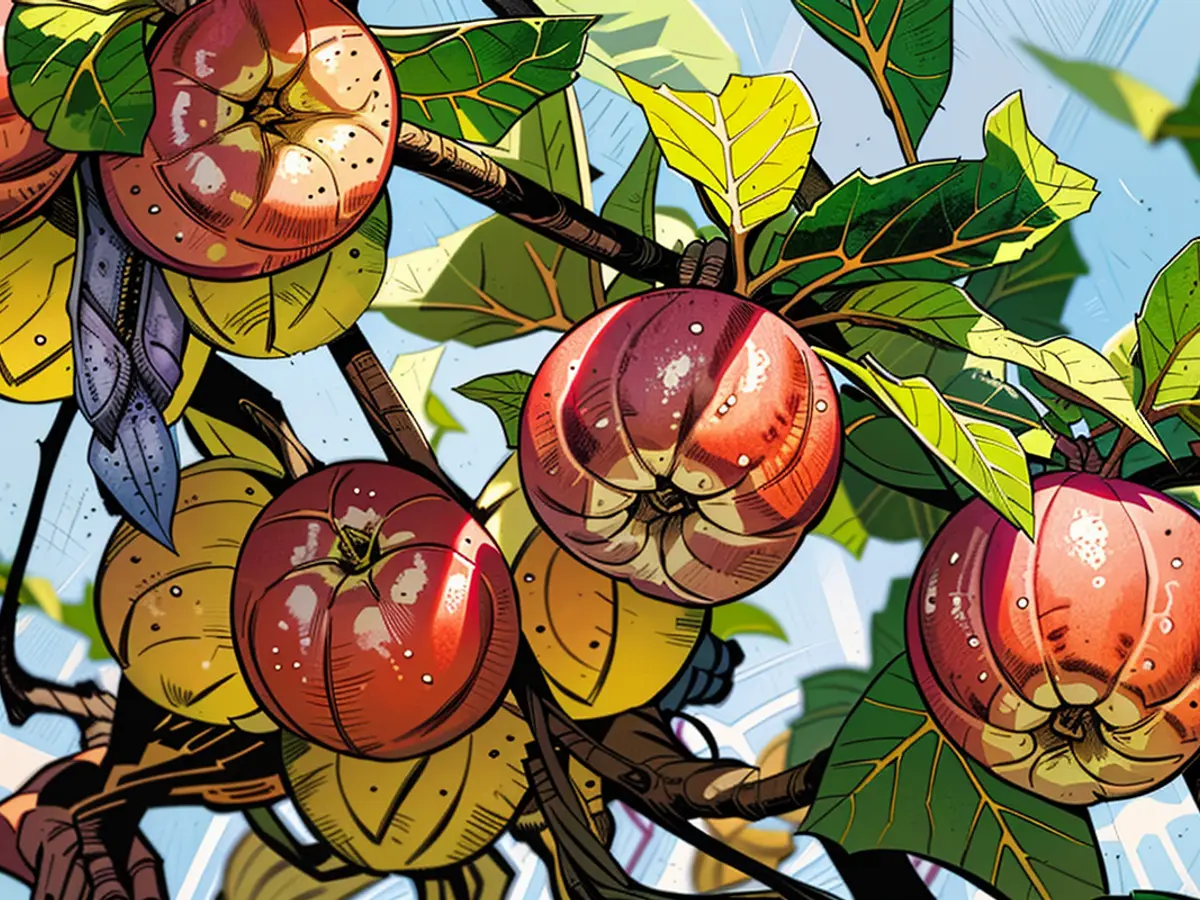- Low apple harvest drives food prices
Due to unfavorable weather and poor harvests, German consumers can expect rising prices for apples and processed apple products. The apple harvest in Germany this year is expected to be the lowest in seven years, according to the Federal Statistical Office. Other fruit varieties are also scarce this year.
Fruit growers expect a significantly below-average yield of 734,000 tons, according to the statistical office's estimate from July. This is around 22 percent less than last year and 26.3 percent below the average of the past ten years. The agricultural information company AMI estimates a slightly larger yield of around 800,000 tons.
Harvest losses of up to 90 percent
Especially in the southern federal states such as Thuringia and Saxony, late frosts have caused the blossoms to freeze, and hail has destroyed many fruit sets. Heavy rainfall and the frequently damp and cool weather have hindered the development of the fruit. Harvest losses are up to 90 percent. In North Rhine-Westphalia, the apple harvest has halved compared to last year.
Therefore, it is expected that three quarters of the German apple harvest in 2024 will come from the large growing areas in Baden-Württemberg (Lake Constance) and Lower Saxony (Old Land). The two states account for around 60 percent of the total German apple growing area.
The situation in neighboring countries looks a little better: According to AMI's forecast, this year's apple production in Europe is only 11 percent lower than last year. The apple harvest began in August. Due to the estimate, the industry knows quite accurately how much fruit will be available on the market. Below-average harvests are also expected for many other fruits such as cherries, pears, plums, and mirabelles.
Apples are the most popular fruit in Germany, according to AMI market expert Helwig Schwartau. There will be enough supply for consumers, but around 100,000 tons more will have to be imported. The average retail price is expected to increase by around ten percent and exceed the two-euro mark per kilogram. Stable quantities are expected for varieties produced in the Mediterranean region, such as Golden Delicious or Gala, but there will be shortages for varieties from the north, such as Jonagored or Elstar.
"Water is the crucial factor"
"Due to climate change, we must prepare for less fruit production in Europe in the coming years," says Schwartau. To compensate for fluctuations in heat and frost, fruit growers need irrigation systems. "Water is the crucial factor. But not all regions have the necessary resources."
The meager yields also affect processed products such as fruit juices and smoothies. It is not yet possible to say how high the price increases for apple juice will be, the Association of the German Fruit Juice Industry (VdF) said. German consumers have already drunk less fruit juice and nectar in 2023 due to rising prices. The price for apple juice is currently 33 percent higher than in 2020, and for orange juice, it is even 57 percent higher, according to the Federal Statistical Office.
Higher prices are difficult to enforce.
Similar issues are facing apple wine producers around Frankfurt, who are already struggling with higher energy costs. "It's challenging to gather the apples needed for a year's production," says Ralf Walther of the Association of Hessian Apple Wine and Fruit Juice Producers. Fruits would then need to be sourced from other regions, "which means we have to dig deeper into our pockets." Meanwhile, customers often hesitate to spend more. "They want gold but are only willing to pay for lead."
Manufacturers of apple sauce and apple butter, jams, fruit preserves, and fruit spreads are also affected. To avoid operating at a loss, these companies must approach retailers with higher price demands, according to Christoph Freitag, managing director of the Federal Association of the Fruit, Vegetable, and Potato Processing Industry (BOGK).
The extent of price increases for consumers remains uncertain. The Association of German Bakeries considers price increases of up to five percent possible for cakes and baked goods with fruit. However, this also depends on the price development of other ingredients like flour and sugar, says managing director Tobias Schuhmacher.
The BOGK describes the situation as "dramatic." In Poland, the main supplier of strawberries, only half the usual quantity was harvested. Other countries face similar issues. Switching to other fruit varieties is not an option this year due to shortages. Other red berries are also affected, with smaller fruits and quality issues resulting from cooler weather.
Due to limited raw materials, usual production quantities cannot be met. The available fruits are significantly more expensive due to short supply, says BOGK managing director Freitag. Additionally, production costs have risen - for example, for energy, labor, and logistics.
The scarce apple harvest has led to fewer apple meadows in urban areas, as fruit farmers sell their land for development due to the financial struggles. The lack of local apples has also impacted the production of apple cider, as meadows used for apple orchards are becoming scarce.








